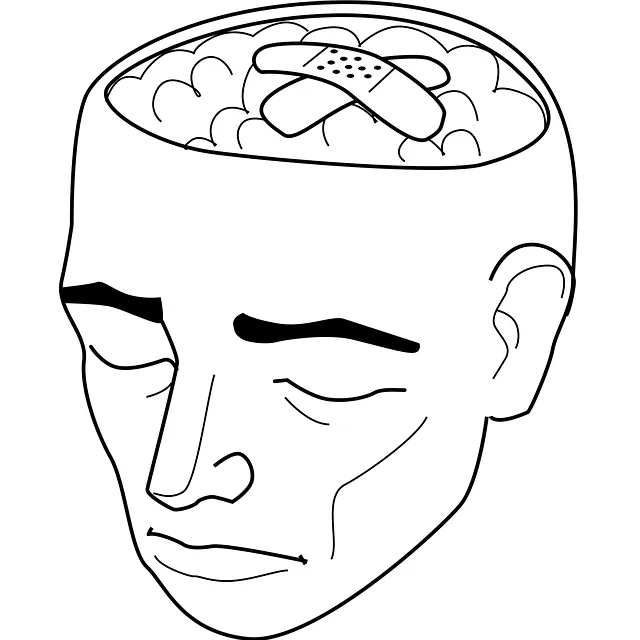Northglenn Kaiser Permanente's commitment to cultural sensitivity in its mental health services is a powerful tool for reducing healthcare disparities and improving patient outcomes. By respecting and incorporating diverse cultural beliefs, they ensure inclusive therapy sessions tailored to individual needs. This approach, coupled with Public Awareness Campaigns, promotes open communication, resilience-building, and holistic healing methods, fostering mental wellness among patients. Their focus on diversity training, stigma reduction, and accessible resources like the Northglenn Kaiser Permanente mental health number sets a standard for culturally competent care, benefiting all communities.
Cultural sensitivity is a cornerstone of effective mental healthcare, ensuring equitable treatment and improved outcomes for diverse populations. This article explores this vital aspect within the context of Northglenn Kaiser Permanente’s (NKP) commitment to cultural competency. We’ll delve into the significance of diversity and inclusion, analyzing how they impact treatment success rates. Additionally, we’ll present NKP’s innovative approaches and strategies for mental health professionals to foster cultural sensitivity, highlighting the critical role in enhancing access to care for underserved communities, with a specific focus on Northglenn Kaiser Permanente’s dedicated mental health services.
- Understanding Cultural Sensitivity in Mental Healthcare
- The Role of Diversity and Inclusion in Treatment Outcomes
- Northglenn Kaiser Permanente's Approach to Cultural Competency
- Enhancing Access to Care for Diverse Communities
- Strategies for Mental Health Professionals to Foster Cultural Sensitivity
Understanding Cultural Sensitivity in Mental Healthcare

Cultural sensitivity is a cornerstone in mental healthcare practice, ensuring that services are accessible and effective for individuals from diverse backgrounds. It involves recognizing and appreciating the unique cultural beliefs, values, and practices that shape one’s understanding of mental health and illness. By integrating this awareness into therapy sessions, mental health professionals at Northglenn Kaiser Permanente can foster an environment that resonates with patients’ identities, encouraging open communication and honest expression.
This approach is crucial in addressing disparities often faced by minority groups in the mental healthcare system. The Public Awareness Campaigns Development plays a vital role in promoting cultural sensitivity by educating both patients and providers about diverse cultural perspectives on mental health. Encouraging resilience-building activities tailored to these cultures can significantly impact mood management, as it helps individuals navigate their challenges while staying true to their heritage.
The Role of Diversity and Inclusion in Treatment Outcomes

In the diverse communities served by Northglenn Kaiser Permanente’s mental health services, embracing diversity and inclusion is paramount for effective treatment. Cultural sensitivity plays a pivotal role in understanding and addressing the unique needs of each patient, ensuring that treatments are not just provided but truly anxiety relief and emotional healing processes. A mentally healthcare provider’s ability to navigate cultural nuances can significantly impact treatment outcomes, fostering trust and creating a safe space for individuals from various backgrounds to share their experiences.
By prioritizing diversity and inclusion, Northglenn Kaiser Permanente aims to prevent burnout among its mental health professionals while delivering culturally competent care. This approach recognizes that every patient’s journey towards healing is shaped by their cultural identity and lived experiences. Through this lens, the organization strives to provide not just symptom management but also holistic burnout prevention strategies tailored to meet the diverse needs of its community members.
Northglenn Kaiser Permanente's Approach to Cultural Competency

Northglenn Kaiser Permanente takes a comprehensive approach to cultural competency within its mental health services. Recognizing the diverse backgrounds and needs of its community, they prioritize creating an inclusive environment for all patients. This involves training their mental health professionals in risk assessment for various cultural groups, ensuring they can provide effective support tailored to individual needs. By fostering a deep understanding of different cultural contexts, the organization aims to reduce the stigma associated with mental illness, a critical step in encouraging individuals from diverse backgrounds to seek help.
Their strategy includes implementing stress reduction methods that consider cultural traditions and beliefs, promoting holistic healing. Additionally, Northglenn Kaiser Permanente actively engages in mental illness stigma reduction efforts, organizing community outreach programs and workshops to educate both patients and staff. This commitment to cultural sensitivity is a game-changer in the field of mental healthcare, ensuring that services are accessible and beneficial to everyone within their care.
Enhancing Access to Care for Diverse Communities

In an effort to promote Cultural Sensitivity in Mental Healthcare Practice, organizations like Northglenn Kaiser Permanente are actively working to enhance access to care for diverse communities. By recognizing and addressing cultural barriers, mental health services become more inclusive and effective. This involves tailored approaches that respect individual and communal values, beliefs, and practices. For instance, providing interpreters or culturally competent staff can significantly improve communication and trust between patients from diverse backgrounds and healthcare providers.
The Northglenn Kaiser Permanente mental health number serves as a crucial point of contact, offering services sensitive to the unique needs of various cultures. Additionally, Social Skills Training and Mental Illness Stigma Reduction Efforts play pivotal roles in fostering understanding and acceptance within these communities. Such initiatives not only encourage individuals to seek help but also create an environment where mental health support is perceived as a valuable resource for all.
Strategies for Mental Health Professionals to Foster Cultural Sensitivity

Mental health professionals play a vital role in fostering cultural sensitivity within their practice, especially in diverse communities like Northglenn, where Kaiser Permanente provides mental health services. One key strategy is to embrace and integrate cultural competency training into their education and ongoing professional development. This enables them to understand and appreciate the unique perspectives, beliefs, and values of different cultural backgrounds. By learning about specific coping skills and practices from diverse communities, professionals can offer more tailored and effective support. For instance, encouraging patients from various ethnic groups to share traditional healing methods or incorporating cultural rituals into therapy sessions can enhance therapeutic relationships.
Additionally, communication strategies are essential tools for building trust and ensuring understanding. Professionals should adopt clear, empathetic, and non-judgmental communication styles, allowing patients to express themselves freely. Bilingual staff members or interpreters can facilitate better communication, especially when assessing risk. A comprehensive risk assessment process should consider cultural factors that might influence a patient’s perception of danger or help-seeking behaviors. Tailoring these strategies to individual needs ensures that mental health services are accessible and beneficial to all patients, regardless of their cultural background, ultimately improving outcomes for Northglenn Kaiser Permanente mental health number clients.
Cultural sensitivity in mental healthcare is not just a best practice, but an essential component of improving treatment outcomes and fostering equitable access to care. As highlighted by Northglenn Kaiser Permanente’s commitment to cultural competency, organizations can significantly enhance their services for diverse communities. By understanding cultural nuances and incorporating inclusive practices, mental health professionals can create safe spaces that resonate with a wide range of patients. This approach not only respects individual identities but also leads to better engagement, higher satisfaction rates, and ultimately, more positive outcomes. Embracing diversity and cultural sensitivity is a game-changer in the field of mental healthcare, ensuring that everyone receives the supportive, accessible, and culturally competent care they deserve.




